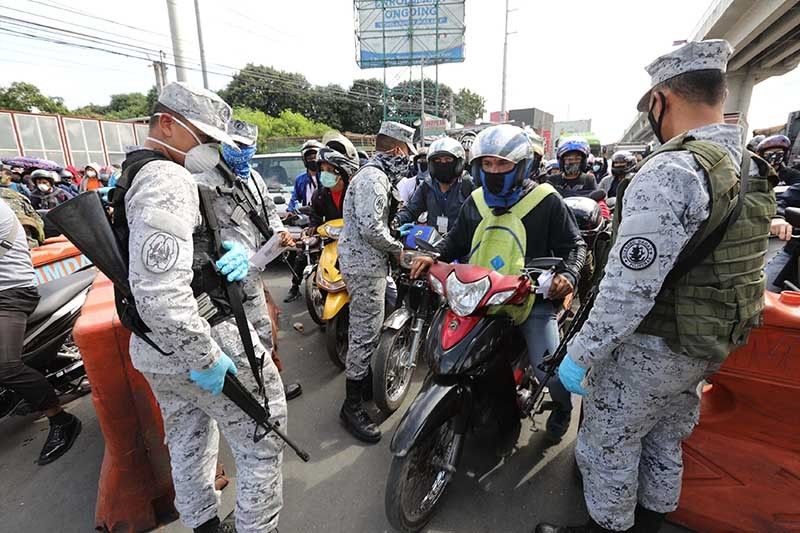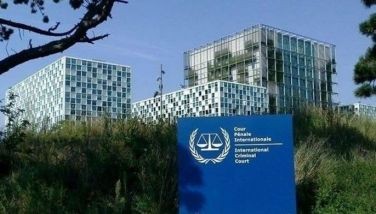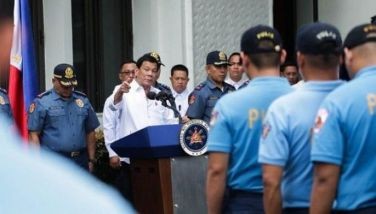UN experts: Emergency measures to fight COVID-19 shouldn't be used to suppress human rights

MANILA, Philippines — Drastic measures to curb the rising number of new coronavirus cases must be motivated by legitimate public health goals and should not be used to simply silence dissent, United Nations human rights experts said Tuesday.
The UN experts—which include special rapporteur on extrajudicial executions Agnes Callamard and special rapporteur on the situation of human rights defenders Michel Forst—made the statement as governments across the globe, including the Philippines, impose restrictions rarely seen in peacetime to arrest the spread of the coronavirus pandemic.
“While we recognize the severity of the current health crisis and acknowledge that the use of emergency powers is allowed by international law in response to significant threats, we urgently remind States that any emergency responses to the coronavirus must be proportionate, necessary and non-discriminatory,” the experts said.
The Philippines detected a fraction of infections seen in hotspots such as China and Italy but its confirmed cases soared to 142 with 12 deaths after a month-long lull of not detecting any case.
The country has been placed under a state of public health emergency in early March and on Monday, President Rodrigo Duterte imposed an unprecedented enhanced community quarantine over the main island of Luzon.
Mass gatherings are prohibited and half of the country’s population are ordered to stay home. People are only allowed to leave their houses to buy food, medicine and other basic necessities.
Mass public transportation, which includes the train systems, buses, jeepney and even tricycles, are not allowed to operate. Taxis and ride-hailing services are likewise suspended.
‘Draconian’ measures
During the month-long quarantine, there will be heightened presence of uniformed personnel to enforce quarantine procedures, prompting critics to voice concerns on the heavy-handed measures imposed by the government.
Justice Secretary Menardo Guevarra said Monday night that violators of the community quarantine may face arrest.
Rights group Karapatan said such “draconian yet vague” measures create a “fertile incubating ground for human rights abuse and violations.”
UN experts stressed that emergency declarations should not be used as a basis to target particular groups, minorities or individuals.
“It should not function as a cover for repressive action under the guise of protecting health nor should it be used to silence the work of human rights defenders,” they said.
The UN experts also said that restrictions should be narrowly tailored and be at least intrusive means to protect public health.
“We encourage states to remain steadfast in maintaining a human rights-based approach to regulating this pandemic in order to facilitate the emergence of healthy societies with the rule of law and human rights protections,” they said. — with report from Agence France-Presse
Photo shows members of the Philippine National Police deployed in Manila amid COVID-19 threat. The STAR/Edd Gumban
President Rodrigo Duterte on March 16, 2020 declares an enhanced community quarantine over all of mainland Luzon, an expansion of an earlier general community quarantine over the National Capital Region.
The entire National Capital Region—16 cities and a municipality—is under community quarantine from March 15 to April 14, which means the enforcement of social distancing measures like letting fewer people on public transportation, reduced store hours, and the possibiity of curfews.
According to a memorandum issued by the Palace on Saturday, March 14, the quarantine means that "movement of people shall be limited to accessing basic necessities and work; and uniformed personnel and quarantine officers shall be present at border points."
Travel restrictions in and out of the capital will also be implemented.
A labor group says another lockdown will never resolve rising COVID-19 cases in the Philippines after the government announced that Metro Manila, Cavite, Laguna, Bulacan and Rizal are placed under the enhanced community quarantine starting Monday.
“The Duterte government seems to be deliberate in focusing its efforts in imposing quarantine and lockdown measures instead of addressing the rising cases of COVID-19 and the worsening state of the pandemic through medical solutions and scientific approach,” says Defend Jobs Philippines.
Presidential spokesperson Harry Roque says the implementation of enhanced community quarantine is meant to slow down the increase of COVID-19 cases, so hospitals and health workers will not be overwhelmed.
Presidential spokesperson Harry Roque announces that Metro Manila, Cavite, Laguna, Bulacan and Rizal are placed under enhanced community quarantine starting Monday, March 29.
Tuguegarao City will be placed under enhanced community quarantine from January 20 to 29 due to the rising number of COVID-19 cases in the city.
Cagayan Gov. Manuel Mamba approved the request of Tuguegarao Mayor Jefferson Soriano to place the city under ECQ for 10 days.
According to the Cagayan Provincial Information Office, the city currently has 246 active cases.
BREAKING NEWS | ENERO 19, 2021 RIATF INAPRUBAHAN NA ANG PAGSASAILALIM SA TUGUEGARAO CITY SA 10-ARAW NA...
Posted by Cagayan Provincial Information Office on Tuesday, 19 January 2021
Batangas, one of the provinces hardest hit by the novel coronavirus, has reported no new cases of the disease for two consecutive days.
The provincial DOH Office says the number of COVID-19 cases in the province stood at 91 with no new cases as of Wednesday afternoon.
Lipa City has the most cases with 26, followed by Batangas City (21) and Nasugbu (11).
Tanauan City has the fourth most cases with eight, followed by Bauan (5) and Alitagtag (3). Cuenca and Sto. Tomas City had two cases each, while the municipalities of Calaca, Lemery, Lian, Lobo, Mabini, Mataas na Kahoy, Padre Garcia, San Jose, San Juan, San Pascual and Taal had one case each, respectively. — The Filipino Connection
- Latest
- Trending

































